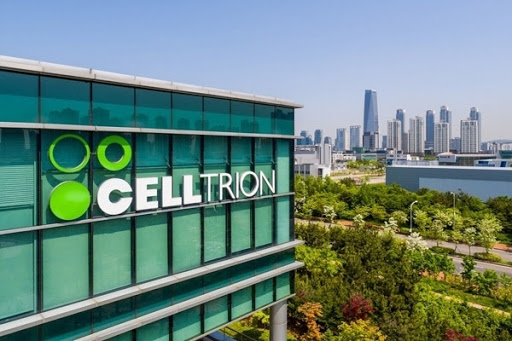Celltrion said Friday it submitted a marketing authorization application to the U.S. FDA for CT-P41, a biosimilar referencing Prolia (denosumab), aimed at treating osteoporosis and other related diseases.
Prolia is an osteoporosis treatment developed by the multinational pharmaceutical giant Amgen. Its active ingredient, denosumab, is also licensed under the brand name Xgeva, specifically for the preventive treatment of complications related to bone metastasis in cancer patients.

Prolia generated $5.83 billion in sales last year according to IQVIA but its patent is set to expire in the U.S. in February 2025, and in Europe in November 2025.
Earlier in October, Celltrion said it confirmed CT-P41’s equivalence and pharmacodynamic similarity to the original drug in a global phase 3 clinical trial involving 477 postmenopausal women with osteoporosis in four countries, including Poland and Estonia.
"After confirming equivalence and similarity to the original drug in the Phase 3 trial of CT-P41, we have finalized our application for marketing authorization in the U.S. as an interchangeable biosimilar," said an official at Celltrion. "We are committed to collaborating with regulatory authorities to navigate the remaining approval processes swiftly, aiming to broaden our market impact in the field of bone disease treatment."
Upon approval, CT-P41 will be accessible in the U.S. for the complete spectrum of indications for which Prolia and Xgeva are licensed, Celltrion said. These indications encompass osteoporosis, bone loss, and the prevention of skeletal complications arising from multiple myeloma and solid cancer bone metastases.
If approved, CT-P41 will hold "interchangeable" biosimilar status, allowing it to be prescribed interchangeably in pharmacies.
Celltrion said it aims to establish a portfolio comprising 11 biosimilar products by early 2025.
Related articles
- Celltrion Healthcare's Zymfentra for autoimmune diseases to launch in US early next year
- Celltrion’s Eylea biosimilar waits for EMA permission
- Celltrion Group successfully concludes share buy-back, facilitating merger
- Celltrion confirms efficacy of Eylea biosimilar at EU meet
- Celltrion, Cyron Therapeutics to join hands in developing new cancer treatments
- Celltrion solidifies efficacy of Actemra biosimilar in global phase 3 study
- Celltrion nabs Japan’s nod for P1 trial of autoimmune disease biosimilar

